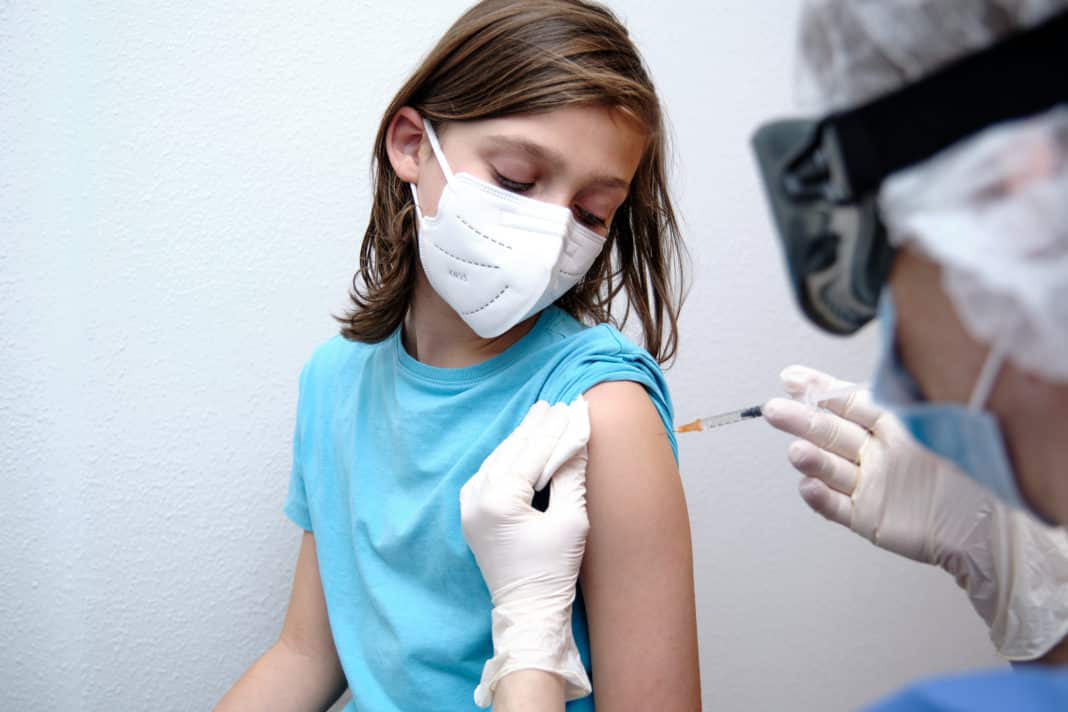The second phase of the paediatric vaccination campaign against the coronavirus that begins this week in the Valencian Community focuses on the 186,088 boys and girls aged between 5 and 8 who study in schools in the Valencian Community.
The operation, coordinated by the Public Health and Education departments started last Monday with the request for authorisations to vaccinate and continues this Thursday with the inoculation of the first doses. This second phase of the campaign is expected to remain active until at least next week.
By educational levels, this stage covers infant students who have reached the age of 5 and those of 1st, 2nd and 3rd grade of Primary. In total, it is expected to vaccinate 22,085 students in the province of Castellón, 68,332 in Alicante and 95,671 in Valencia. Of this total, minors will be vaccinated whose families deliver the vaccination authorisation to the educational centre and who on the day they are to receive the vaccine are not confined, sick or ill, or absent for any other reason.
In this sense, during this second stage of the paediatric vaccination campaign, a new opportunity will also be offered to those who could not be vaccinated in the previous phase.
To cover this phase of the paediatric vaccination campaign, the Valencian Community already has 192,640 doses and will receive 138,000 more in the coming days. In total, 330,640 doses.
Collection of authorisations
The first thing to be able to receive the vaccine is for the family to fill out, sign and deliver to the school the authorisation and the questionnaire on the health of each minor that the centre will have sent them. Families have a deadline to complete this process until tomorrow, Wednesday 12 January.
Once the authorisations are collected, the management of the educational centre coordinates with the medical team that will travel to the school to inoculate the vaccines in order to know precisely the number of doses needed, as well as to organise the operation in advance.
The unit that attends the school is made up of medical, nursing and logistical support staff, and has the appropriate means to deal with possible eventualities.
The process takes place in the schools themselves, during school hours and by educational level to preserve the usual groups of coexistence. This means that if a boy or girl has reached the age of 7 but for any reason is still in the first year of Primary, they are vaccinated with their classmates.
As in the first phase of the campaign, with the youngest children, a family member is also allowed to access the centre at the time of vaccination to accompany them emotionally. It is very important that crowds are avoided at all times and, for this reason, the person must remain on the school grounds for as little time as possible. In fact, in many educational centres the accompanying persons wait outside the enclosure for 15 and 30 minutes after the injection, time in which the minors remain under observation.
With this second stage of the paediatric vaccination campaign, all boys and girls from 11 to 5 years old who reside in the Valencian Community, about 330,000, will be covered.
In the first phase, which developed normally before the Christmas holidays, all boys and girls from special education centres, rural centres and 4th, 5th and 6th grade primary schools were immunised whose parents or guardians authorised the vaccine and they were in a position to receive it (they were not confined or had serum contraindicated for medical reasons).
Specifically, 107,360 students received the first dose of the Pfizer paediatric vaccine, that is, seven out of ten schoolchildren at those levels.
Second dose from February
The second dose of the vaccine will be administered eight weeks after the first to increase the immune response, as established in the National Vaccination Strategy.
For this reason, if a sick child is in isolation on the day of the vaccination or cannot attend the appointment for any other reason, it is planned to provide them with new opportunities, as has been done with adults.
On the other hand, those who turn 12 years old between the first and the second dose will receive the first dose of the paediatric vaccine and the second adult dose (the one recommended from the age of 12) with the established period of eight weeks for the second dose.





